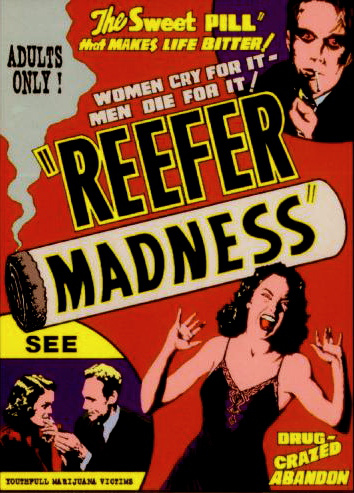Sins of Science
Racism is man’s greatest threat to man–the maximum of hatred for the minimum of reason. — Abraham Heschel

I am outraged by the explicit racism that transpired this weekend in Charlottesville, Virginia, and I am livid at hearing others defend it.
For a proper response to the violence and bigotry, here’s Marco Rubio:
“The organizers of events which inspired and led to the Charlottesville Terrorist Attack are 100% to blame…When [an] entire movement [is] built on anger and hatred towards people different than you, it justifies and ultimately leads to violence against them…The White Supremacy groups will see being assigned only 50% of [the] blame as a win.”
However, as easy as it is to condemn Nazis and other hate groups (for which, my current state, Ohio, has over 30), it can be much harder to condemn the bigotry that exists within ourselves. So hard, in fact, that even scientists—the arbiters of truth—are villains of it.
THE SCIENTISTS OF EUGENICS
Eugenics is the act of trying to “improve” the human population by controlled breeding—which in and of itself implies that there are better and worse kinds of people. Infamously, eugenics is associated with the Nazis, who in the 1930s used it to justify the racial policies being implemented in Nazi Germany.

And although I love the field of psychology, this science is not without blood on its hands…
Many of my field’s most used statistical techniques come from individuals who originally developed them to try to prove their racist beliefs. For example, I’ve talked about correlations many times on this site, and yet, its inventor, Karl Pearson, believed that his nation should be developed from “better stock” and the only way to do so was “chiefly by way of war with inferior races.”
In fact, one of my favorite posts on this site is based on the original work of Francis Galton, the man who invented the term eugenics in the first place.
IT’S NOT JUST THE PAST
In 1994 (hardly 20 years ago), “researchers” published a book called The Bell Curve: Intelligence and Class Structure in American Life. In it, they argue that class differences relate to IQ differences—which they assert are distinguishable by race. That is, they spend nearly 900 pages trying to prove that Black people are less intelligent than White people.

And this book became a “New York Times Bestseller…”
But within a year of the book’s release, when experts in the field were able to examine the “data” presented, they discovered countless mistakes, from one-sided reasoning, to incorrect (and cherry-picked) citations, to blatant mathematical errors.
Of course, all of these “mistakes” supported the authors’ thesis.
Then, in 2007, an economic historian wrote a book that argued “Caucasian superiority” was due to the wealthy English outbreeding the poor, which allowed their superior genes and values to flourish. Then, in 2014, a science journalist wrote a book that supposedly examined genetic sequencing between races to again show that Blacks were inferior to Whites.
But for both of these books, critics have repeatedly pointed out how they ignore the influences of geography, how they cite research that has been discredited, and how they assert claims as fact, when at best, they are the mere speculation of racially motivated men.
And the people writing these things are supposed to be the most introspective, empirical-minded individuals in our society. Yet they, too, are blinded by their need to feel superior to others.
WHERE TO GO NOW?
To cite a social psychologist on the above points:
“There were brilliant scientists who nonetheless believed in their own superiority as a function of ancestral and national origins, which they correlated with skull shape, skin color, biological sex, and so on. These beliefs are grossly stupid, obviously self-serving (all were white men), and provably false.”

So don’t just spend your Facebook hours making outraged posts, take the time to educate yourself, to read more on the topic, to take a moment and seriously try to perspective take: If you saw a group of men armed with riot shields, clubs, and guns all there to promote their ideology that you, your family, and your friends should be eradicated simply because of your skin color, how would you have felt? What would you have thought?
Sadly,
jdt
**today’s post was inspired by Geoff Durso whose quote was cited above
Everyday Psychology: If you want to learn more about how racism got to where it is today, I’d highly recommend watching Thirteenth (available on Netflix) or The House I Live In. If you’re looking for a good book on the topic, I’d also recommend Ghettoside. Or, if you just want a brief summary of some of these topics, I have a previous post on the subject here.
[scientific racism] Clark, G. (2007). A farewell to alms: a brief economic history of the world. Princeton University Press.
Fischer, C. S., Hout, M., Jankowski, M. S., Lucas, S. R., Swidler, A., & Voss, K. (1996). Inequality by design: cracking the bell curve myth. Princeton University Press.
Feldman, M. (2014). Echoes of the past: hereditarianism and A Troublesome Inheritance. PLoS genetics, 10(12), e1004817.
[scientific racism] Hernstein, R., & Murray, C. (1994). The bell curve: Intelligence and class structure in American life. New York Simon and Shuster.
Kincheloe, J. L., Steinberg, S. R., & Gresson III, A. D. (1997). Measured Lies: The Bell Curve Examined. St. Martin’s Press, Scholarly and Reference Division, 175 Fifth Avenue, New York, NY 10010.
Szaky, T. (2008). A review of Gregory Clark’s a farewell to alms: A brief economic history of the world. Journal of Economic Literature, 46(4), 946-973.
[scientific racism] Wade, N. (2014). A troublesome inheritance: Genes, race and human history. Penguin.








Thanks for the great post! As a member of several marginalized groups I appreciate your call to action for allies to EDUCATE THEMSELVES. It’s both unfortunate and terrifying that we are still talking about Nazis in 2017 but as with all of your posts, you took a difficult topic and made it both interesting and insightful.
JBo! Good to hear from you 🙂 And thank you for the kind words! Indeed, even allies (myself included) need to continue to educate themselves. This a complex issue with lots of historical and current context to understand. But importantly, people must always remember that real people, like you–and their/your suffering and wellbeing–are at the center of it. Thank you again for your comment.
Thank you, Jake, for a timely and well written comment on racism. How can a person ever assume superiority when they read about the numerous centers of learning in Africa and the near East which surpassed that of the European culture for many years and which formed the basis for much of our understanding of mathematics, astronomy, religion, literature, etc. This is one of your best posts. Meeting with people who are different and who have different views helps us appreciate both their unique contributions and discover our many common values.
.
Ann! Thank you for such a thoughtful and insightful remark–and one I couldn’t agree with more!
It’s funny how many of the books promoting scientific racism above cite Western civilization (particularly democracy in the US) as the pinnacle of “(wo)man’s achievement.” When really, the US has only been around for a couple hundred years, while the Byzantine empire (for example) was around for thousands. And the points you make are even more apt: The whole history and development of European culture can trace its learnings to African, the Middle East, and Asian thought.
Thank you for taking the time to comment 🙂